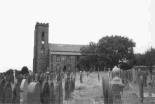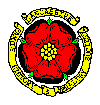LANCASHIRE FAMILY HISTORY AND HERALDRY SOCIETY
Rossendale Branch Newsletter June 2012
| Programme: 2012 | |
Wednesday 6th June ‘And in flew Enza’ a talk by Tony Foster |
Wednesday 4th July Newchurch in Pendle People a talk by Brenda Hustler |
Wednesday 1st August Research evening |
Wednesday 1st September Out Visit to The Straits, Oswaldtwistle |
Research and Advice Sessions at Haslingden Library every Monday 5.30 – 8.30 pm
Note: the doors to Haslingden Library close at 7.30 pm.
and at Rawtenstall Library every Tuesday 1.30 – 3.30 pm
We may be able to do simple look-ups for distant members. When contacting us with an enquiry, please include your membership number
The LFHHS Resource Centre.
The Society’s Resource and Research Centre at 2 Straits, Oswaldtwistle, BB5 3LU is open every Thursday from 1.00pm – 5.00pm and 1st Saturday of each month 1.00pm..
Coming Events
Collecting Local History Days 2012
The Museum of Lancashire is once again collecting items for display in the Peoples Gallery. of the newly refurbished Museum of Lancashire, Preston.
If you have an item with an interesting story and would like to see it displayed in the County Museum they would like to hear from you. Items don’t have to be spectacular or even very old, they just have to say something about your life in Lancashire:
Tuesday 19th June- Accrington Library, 1-4pm
Thursday 21st June - Burnley Library, 1-4 pm
Saturday 23rd June- Clitheroe Library, 12-3pm
Saturday 30th June- Rawtenstall Library, 12-3pm
For further information contact Stephen Miller, Community Out Reach Officer
stephen.miller@lacashire.gov.uk 01772 534046
Saturday 23rd June 2012
History Festival and Fair
University of Central Lancashire, Foster Building, on the main UCLan Campus, Preston PR1 2HE 10.30 – 3.30 pm.
Free entry, free talks by local and nationally recognised speakers – Dr Nick Barratt,(Who do you think you are?), Dr Nick Mansfield (former Director People’s History Museum) and Chris Pomery (Family Tree DNA)
Stalls and Exhibitions include:
Archives, local and family history societies, museums, booksellers, postcard sellers and heritage organisations, either selling their wares, providing advice, or both.
Sunday 30th September
2012
LFHHS Annual Dinner
Hhosted this year by the Preston Branch
at Alston Hall, Longridge, Preston
PR3 3BP 12.30 for 1.00pm.
£17.50 per head. Booking form and menu etc. are given in your May “Lancashire” journal.
The speaker is Dr. Alan Crosby, the renowned Preston historian.
Limited availability so please book early.
Additions to LancashireBMD
Added during May, 2,302 Marriages for Hyndburn and Rossendale RD comprising:
Accrington, St Paul (1991-2006);
Baxenden, St John (1997-2005);
Accrington, St Peter (1976-2007);
Tunstead, Holy Trinity (1949-1983);
Edgeside, St Anne’s (1952-1988);
Altham, St James (1995-2007);
Great Harwood, St John (1983-2005);
Facit, St John (1930-1936);
Clayton, All Saints (1982-2005);
Accrington, Christ Church (1978-1988);
Rawtenstall, St Paul (1945-1984);
Stubbins, St Philip (1939-2004);
Haslingden, St Peters (1946-1993).
Society Sales
Census of the Catholic Congregation of Preston 1810 & 1820 by Rev Joseph Dunn, transcribed by Margaret Purcell, 185 pages. £4.00 (plus p&p UK £2.20; Europe £5.00; Overseas £7.70)
This was first published in 1993 and is a real must for anyone researching their Catholic ancestors in the Preston area. The book includes a list of Preston streets in 1821 and a sample page from the 1820 census. This book is normally £5.00
Copies can be obtained from LFHHS, 2 Straits, Oswaldtwistle BB5 3LU.
Cheques should be made payable to LFHHS or credit card payment forms can be downloaded
from
www.lfhhs.org/membership.php
Rossendale (and Rochdale) Dialect Words and Phrases
In 1886, Henry Cunliffe compiled “A Glossary of Rochdale-with-Rossendale words and phrases”. He stated that the Elementary Education Act [1870] “ had begun to tell upon the common people in the direction of giving them a new tongue. And along with this, new dictionaries, are being published, whose object is the rendering of difficult and technical words and making them intelligible to the most limited of ordinary capacities”.
Cunliffe speculated that, as a result of better education dialectical forms would run the risk of losing their sense and meaning altogether and lose them irretrievably. Therefore, in an attempt to avert this possibility he had compiled his glossary. He says that although the glossary deals with the forms current within a very small area, it contains all the best words used by a greatly extended population, including upwards of fifteen hundred words which do not occur in any other glossary hitherto published.
Cunliffe claims that there are distinct differences between the Rochdale and Rossendale tongues. It appears to him, that Rooley Moor and the ridge westwards, which crosses Rochdale Parish, constitutes the division between the two dialects. On the northern or Rossendale side, from Bacup to Edenfield we have the “Rossendale Twang”, in its full strength. On the southern side, is the patois which gives immortality to the writings of Tim Bobbin [John Collier]. Cunliffe says he has resided on both sides of this divide, in each instance for a period of twenty-five years “and mixed with much of the common people, without perceiving the least tendency towards a fusion of the two tongues”.
Like Henry Cunliffe I have also lived in both areas covered by this survey. I was born in Rochdale, lived in Heywood, was educated and worked in Bury and finally settled in Haslingden, my father’s birthplace. I learnt a great deal of dialect from Richard Ogden, my Rochdale grandfather who was born in 1866 and died in 1956, he was one of the “common people” who benefited from the Elementary Education Act. He left full time education aged eight to work part- time in the mill. He worked as a weaver all his life. He used to sit me on his knee and recite songs and poems in the dialect. Henry Banks, my Rossendale grandfather was born in 1890, he was better educated and didn’t have as strong an accent, so perhaps the changes foreseen by Henry Cunliffe had already begun to take place.
Looking through the pages of the glossary, there are words and phrases that must have disappeared long ago. I can hardly believe that they were ever in general use.
AGENDOLE (Ross) A meal measure of 8 1/2lb., the quantity supposed to have been doled out weekly by the Saxon employer to each of his man servants. With many the two words “an agenhole” have coalesced, and the substantive is pronounced NAGENHOLE and sometimes NAGHLETON, NAGENDAL, or NACKLETON.
BANGBEGGAR, A constable; one who drives children or other trespassers from church doors during divine service; an under bailiff.
BOLTHER, River drift, macadamised stones.
BOWLEGGED SUNDAY (Ross) A corruption of Bowl-egg Sunday. Easter Sunday, when eggs boiled hard in dye-water are bowled in fields for amusement.
BUCKFANG (Ross) To punish, as among boys, two of whom take a third by his shoulders and feet and swing his back against a wall; or one boy steps stealthily behind another, seizes him firmly by the shoulders, and whilst thus secured, bumps him in the posteriors with his knee.
INKLE, white coarse tape. “As thick as inkle weavers” a local proverbial saying in reference to workpeople who are closely packed at their employment, and therefore usually thick or friendly with each other…..
MISCHIEVE-NEET, the night of April 30, when boys carry off all mops, tubs, brushes, etc which may have been left out of doors, and place them in an inconvenient position for recovery, as on a neighbouring hill or house-top.
NATCHELL, Repudiated. When a wife or husband leaves home in consequence of a disagreement and the partner left behind declines publicly to be responsible for his our her debts is said to be “crying his or her natchell”.
ODD, To redress an inequality, “The pastime of New Market fell on inconvenient days, and was odded by changing the date on which it should occur in future.” To equalise.
PINDOWLER (old Ross) The woman who falls in love with and courts a man is said to be his Pindowler.
To be continued. Next month I will give you some words which are pronounced differently in the two districts. Rita Hirst




